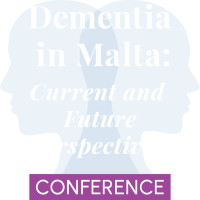
6th September 2024
Workshops
WS1
Lifelong Learning for people with dementia in a school context
Diana Schack Thoft, Kim Michael Alberg Sørensen, Helle Kousgaard Hansen – Denmark
In this workshop, the Danish lifelong learning programme for people with dementia will be presented focusing on a number of initiatives including cognitive training and stimulation, conversational support activities related to impulsive behaviour due to frontotemporal dementia and research related to the lifelong learning programme. The format will be an introduction and hands-on examples of the activities in the lifelong learning programme.
WS2
Stimulating Communication in Persons Living with Dementia
Nicola Montesin, Ruth Calafato, Paul Schembri, Roberta Said, Emanuela Scerri – Malta
The workshop will be run by a group of speech-language pathologists working in the field of geriatrics and with individuals living with dementia. The workshop will mimic the cognitive-communication groups currently being held within the public sector and will include two main activities from these groups. During the workshop, the moderators will carry out role-play activities, with the attendees acting as participants, so as to lead to a more hands-on approach. Following this, attendees will be involved in discussion and comparison of outcomes. Strategies and tips for facilitating communication with people living with dementia will be discussed towards the end of the workshop. Participants will be given a set of True and False questions and will test their knowledge using an interactive presentation software.
WS3
Lifelong Learning UK – Brain Gym
Jane Beaumont – UK
This workshop offers the opportunity to participate in an interactive introduction to the UK Lifelong Learning intervention. Developed in partnership with Danish and Norwegian schools as part of a research programme investigating how a unique teacher-led, integrated educational lifelong intervention, known as Brain Gym in the UK, can enable their ‘students’ with early-stage dementia to continue to learn, develop, and grow. The objective of the Brain Gym programme is to support its members with dementia to maintain or develop skills that can benefit both themselves and their carers to maintain their independence and quality of life at home.
WS4
Voksenskolen (adult school) for people with dementia in Grimstad municipality, Norway
Geir Vegar Berg, Brooke Hollister, Monica Reiersølmoen, Tor-Erik Austenaa, Ingunn Meyer Norschau – Norway
Voksenskolen (adult school, VS) for people with dementia was established as a project by Grimstad municipality in 2019. VS is a day program for people with early to moderate stages of dementia. The VS model is based on four pillars: cognitive training, physical activity, ADL tasks and social interaction. The main goal of VS is that people with dementia can maintain their functional abilities and live independently for as long as possible. In 2021 a research project was established to evaluate outcomes related to VS and to create a VS replication model to be shared with others interested in replication. VS students and carers are largely satisfied with VS. Though our study did not include a control group and our sample was too small to allow for significance testing, some outcomes related to quality of life, cognitive impairment, physical function, and caregiver burden showed promising positive results. This session will present more details of the VS model, study findings, and how to use the replication model. Participants will experience cognitive training exercised used at VS.
WS5
Empowering through Psychotherapy: Support and Advocacy in Dementia Care
Janette Schembri, Pietru Farrugia, Umberto Buttigieg – Malta
This workshop will delve into the vital role of psychotherapy in dementia care, with a special emphasis on Gestalt therapy. It aims to share how psychotherapeutic interventions not only offer crucial support to individuals with dementia and their families but also act as a powerful advocacy tool in care settings. Attendees will gain a comprehensive understanding of how these therapeutic practices foster deeper connections and enhance comprehension, creating opportunities for empowerment to those affected by dementia. We will explore various strategies and insights that relatives and professionals can integrate into their efforts to support and advocate for their loved ones and clients effectively.
WS6
A stimulating programme with music in mind!
Katherine Jenkins – UK
This workshop introduces the use of educational classroom-based activities in individual, group, and some social settings. The aim is to encourage listening, stimulate muscular memory through keyboard work, and develop speech and singing through a positive ‘can do’ approach. Every individual is a resource with their own music experience.